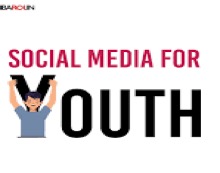
Though often touted as something mostly positive that offers connectivity and information sharing, social media can pose serious challenges for younger generations.
The effects of social media on young people are varied and wide-ranging. Cyber bullying, mental health concerns, social media addiction, and privacy issues are potential adverse effects.
Social media profoundly influences teenagers. It can shape perceptions of self-worth and impacts how people interact with one another.
It can also affect social skills development, self-esteem and mental health.
As much as there are positive effects such as fostering social interaction and connection with social network, social media platforms have some negative impacts.
Cyber bullying and online harassment can be classified as repeated and intentional harm through technology -via text messaging apps, social media platforms or online.
It includes humiliation, embarrassment, extortion and threats.
Victims of cyber bullying can experience different mental health issues, such as isolation, depression or social anxiety, and self-harm.
In extreme or prolonged cases of this type of bullying, it can even cause suicidal thoughts or acts of suicide.
Social media offers near-constant exposure to carefully curate images and posts, which is extremely harmful to youth mental health.
This exposure can cause teens to unrealistically compare themselves to others and potentially lead to low self-esteem or depression.
Some argue the risk to mental health is one of the most concerning negative effects of social media on teens.
An astounding 93% of people who’ve been cyberbullied say the experience had a negative impact on them, with most reporting feelings of sadness, powerlessness, and hopelessness.
Research shows that adolescents who spend more than 3 hours a day on social media have an increased risk of developing teen depression and anxiety.
This likely stems from factors including peer pressure or feeling inadequate when life doesn’t seem as exciting or fulfilling.
Other studies suggest that victims of cyber bullying have a higher risk of developing depressive symptoms.
“Mental health can be affected by social media when there is no clear understanding of how it works.
Although teens know that not everything on social media is real, they may still be influenced and experience negative emotions that create feelings of worthlessness or low self-esteem.”
Social media can provide a vast space for young people to express themselves; however, it poses substantial risks to their privacy and security.
Reckless sharing of personal information can make them targets for private data theft and identity fraud.
Additionally, social media interactions with strangers and adults online can expose teens to stalking, cyber bullying and potential exploitation underlining the need for vigilant privacy settings and safe usage.
Social networking sites often have complex privacy settings that can be difficult for young people to fully understand and navigate.
Worse, it can be difficult to appreciate the implications of not having a secure profile set up.
It’s critical for teenagers to learn the importance of profile visibility and managing friend and share requests.





